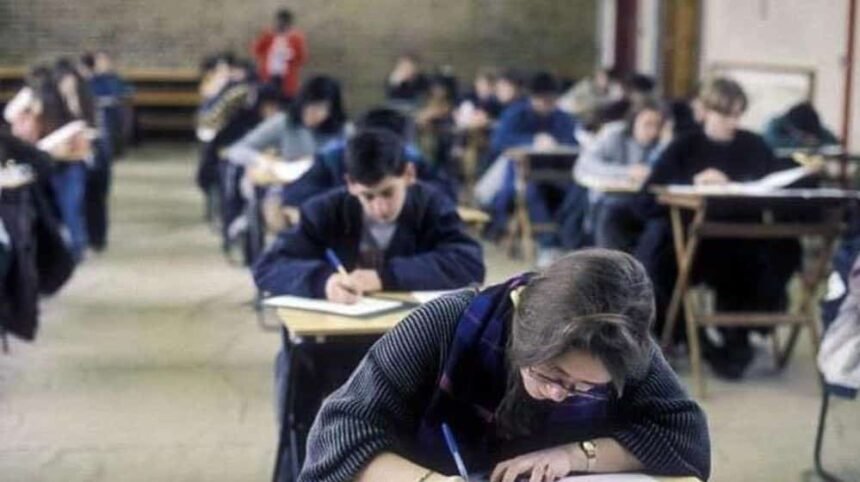Pakistan’s Vanishing Scholars: The Crisis of Declining University Enrollment
Last month, over a steaming cup of chai in Swat, my friend’s cousin—a bright 18-year-old fresh from intermediate college—shared a decision that stunned me. “I’m skipping university,” he said, eyes glued to his laptop, hunting freelance coding gigs. “Why pile on debt for a degree that won’t even get me a job?” His words weren’t just personal; they echoed a national crisis. Pakistan’s university admissions have plummeted by 13-20% in 2025, leaving lecture halls half-empty across the country. Enrollment has slid from 2.23 million in FY2022 to 1.94 million last year, a stark indicator of a higher education system buckling under strain. With Pakistan at a crossroads—economic recovery faltering and youth comprising 64% of its population—this decline isn’t just a statistic; it’s a threat to the nation’s future, demanding a deep dive into its causes, impacts, and solutions.
The roots of this crisis are tangled but clear. Affordability is a primary culprit. Public universities, once sanctuaries for the middle class, now charge fees that devour family budgets amid inflation exceeding 20%. The Higher Education Commission (HEC) budget, frozen at Rs.65 billion since 2017 despite a devalued rupee and post-COVID economic scars, has forced universities to hike fees and slash scholarships. At Bahauddin Zakariya University, 6,000 of 10,000 seats sat vacant this year, a 60% shortfall driven by costs outpacing incomes. For a family earning Rs.50,000 monthly, a Rs.100,000 annual fee is a non-starter, pushing students like my cousin toward informal learning or no learning at all.
Beyond cost, the perceived value of a degree has crumbled. Outdated curricula, heavy on rote theory and light on practical skills like coding or critical thinking, leave graduates ill-equipped for a job market where 31% of educated youth remain unemployed. Employers lament this skills gap, driving students to platforms like DigiSkills.pk, which has trained 4.5 million in market-relevant skills since 2018. The 2018 shift to a four-year BS program, meant to modernize education, backfired without adequate funding. Universities like Quaid-i-Azam leaned on underpaid visiting faculty, sparking protests and eroding trust. “Our universities are stuck in the 1990s,” a Karachi-based tech recruiter told me last week, explaining why her firm bypasses graduates for bootcamp-trained coders.
Brain drain and systemic inequities deepen the wound. Student visas to the UK, US, and Canada have quadrupled since 2019, as ambitious youth seek better prospects abroad. Those left behind face stark disparities: female enrollment lags at 46%, particularly in rural areas where cultural barriers and poor infrastructure block access. Urban-rural divides and gender gaps aren’t new, but their persistence in 2025, when digital learning could bridge them, is a policy failure. Pakistan’s universities, like a weary boxer shadow-punching in an empty ring, are losing relevance—underfunded, outdated, and disconnected from global trends.
The consequences ripple across society. In the short term, universities face a death spiral: fewer students mean less revenue, leading to decaying labs, unpaid faculty, and stalled research. Last year, faculty strikes at Punjab University disrupted classes for weeks, a symptom of budget cuts that allocate only 1.77% of GDP to education—among the lowest in South Asia. For families, especially the underprivileged, higher education was the ladder to mobility; now, it’s a luxury, widening inequality’s chasm. Rural students, already battling poor schooling, are further sidelined, with only 12% of 18-23-year-olds in Balochistan enrolled in tertiary education.
The long-term stakes are graver. A skills-starved workforce hampers innovation, chaining Pakistan to low-value industries like textiles while neighbors like India build tech hubs in Bangalore and Hyderabad. Brain drain bleeds billions in human capital, with the World Bank estimating a potential 1-2% annual GDP growth loss if trends persist. With youth forming 64% of the population, an uneducated, jobless generation risks fueling unrest in a region already fraught with instability. The 2022 protests in Karachi over fee hikes hint at this powder keg—students chanting “Education is a right, not a privilege” weren’t just angry; they were desperate. Without intervention, Pakistan’s demographic dividend could morph into a demographic disaster, echoing Sri Lanka’s youth-driven unrest in 2022.
Solutions require bold, coordinated action. First, funding must surge. An “Education Emergency,” as one analyst advocates, could raise HEC’s budget to Rs.125 billion, covering faculty salaries, lab upgrades, and scholarships. Doubling education’s GDP share to 4%—still below UNESCO’s 6% benchmark—would signal commitment. Scholarships must prioritize need over merit alone, targeting rural and female students. Bangladesh’s vocational training model, which boosted youth employment by 15%, offers a blueprint: tie funding to outcomes, like job placement rates.
Curricula need a 21st-century overhaul. Mandating industry partnerships for internships and courses in AI, data science, and renewables would align degrees with demand. India’s National Education Policy 2020, emphasizing skills and flexibility, saw enrollment rise 11% in two years; Pakistan could follow suit. Hybrid learning, via platforms like Coursera or EdX, could cut costs and reach rural students. A pilot at Allama Iqbal Open University, enrolling 1.2 million online learners, proves scalability. “By making education practical and accessible, we can rebuild trust,” says Dr. Ayesha Hassan, an education policy expert.
Equity demands focus. Mobile learning units and community centers, like those trialed in Khyber Pakhtunkhwa, can boost female enrollment by 20%, per local NGOs. Career counseling in schools, currently absent in 80% of public institutions, could rekindle the degree’s allure, countering the pull of quick-fix certifications. Privatization, often floated as a cure, risks elitism; public-private partnerships, with clear oversight, are wiser. Vision 2025’s goal of 12% tertiary enrollment by 2025 is slipping away—only 9% today—but a national compact uniting government, HEC, and industry could reverse this.
The way forward hinges on urgency. “Clear, thoughtful policy reform is non-negotiable,” warns education analyst Dr. Tariq Rahman. Short-term wins—fee subsidies, online expansion—must pair with long-term vision: a skilled, inclusive workforce to power Pakistan’s growth. Stakeholders must convene now, not tomorrow, to fund minds over monuments. Empty lecture halls aren’t just a loss of students; they’re a loss of hope. Pakistan’s youth deserve better—they’re not just numbers; they’re the nation’s pulse.


